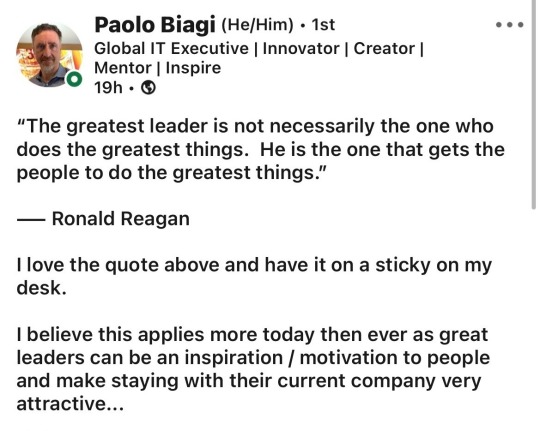#Leadership development
Explore tagged Tumblr posts
Text

Women, Work, and the Future of Japan: A Catalyst for Change
Japan's post-war economic resurgence was once driven by its distinct work culture, but this same culture has now transformed into a double-edged sword, imperiling the nation's future prosperity. Historically, Japan's collectivist ethos, rooted in the pursuit of "Wa" (harmony), fostered stability and cooperation, but in today's context, it often manifests as a rigid hierarchy where excessively long working hours are misconstrued as the pinnacle of loyalty and dedication. This has severe human consequences, including "karoshi" (death from overwork), plummeting birth rates, and a dwindling workforce.
The country's inherent risk aversion, stemming from a deep respect for tradition, hinders innovation, with the fear of disrupting social balance outweighing the benefits of progress. This is evident in Japan's struggles to keep pace with global technological advancements, particularly in software and artificial intelligence, leading to stagnation and erosion of its competitive edge. Furthermore, traditional workplaces prioritize visibility and seniority over merit, resulting in ineffectual leadership, misguided decision-making, and a brain drain as talented individuals seek opportunities abroad.
Recent government initiatives aimed at improving work-life balance and promoting sustainability offer hope, as do forward-thinking companies adopting flexible work arrangements to attract top talent. However, a profound cultural shift is necessary for Japan to reclaim its innovative forefront. This requires blending cherished traditions with the uncertainties of innovation, fostering an environment that encourages risk tolerance, creativity, and merit-based advancement. A gradual shift in societal values, emphasizing individual creativity alongside collectivist principles, is crucial, as are structural reforms in workplaces and educational institutions promoting meritocracy, flexibility, and lifelong learning.
Interwoven with these challenges is the complex situation of Japanese women, who face traditional expectations, societal pressures, and workplace demands that profoundly impact their lives and the country's future. The notion of "ikigai" (finding purpose in life) often narrowly translates to family devotion for women, leading to unfulfilled potential and stagnation. This results in low labor force participation rates, a persistent glass ceiling, and underutilized parental leave policies, placing an undue burden on women and threatening individual well-being and the broader social and economic landscape.
A growing pushback against these traditional expectations, marked by women-led startups, flexible work arrangements, and paternal leave initiatives, signals a tentative shift towards inclusivity. To truly empower Japanese women, however, a profound societal transformation is needed, involving a reckoning with outmoded gender roles. Education and awareness campaigns, alongside the promotion of male allies embodying modern masculinity, can challenge these norms. By celebrating the diverse contributions and aspirations of its female population, Japan can dismantle barriers, realizing the full potential of its women and securing a vibrant future for the nation. The path forward hinges on choosing between the status quo and a new trajectory that values, supports, and empowers Japanese women to thrive, ultimately determining the country's prosperity.
Japanese work culture is unsustainable (pigallisme, April 2024)
youtube
Sunday, December 1, 2024
#japan work culture#innovation#tradition#social change#gender equality#economic prosperity#labor reform#societal norms#cultural evolution#east asian studies#future workforce#work-life balance#leadership development#organizational change#asian economy#global competitiveness#women in the workforce#japanese society#modernization challenges#video essay#ai assisted writing#machine art#Youtube
7 notes
·
View notes
Text
Although all these books claim to offer the latest and greatest in management theory and tools, the reality is that most innovative, state-of-the-art tools are merely elaborate makeovers or the repackaging of fundamental management theory. A rose by any other name is still a rose. How many different ways can you talk about change management or empowered work teams, for instance? To be fair, however, the proponents of these “new” theories and practices do echo a shared truth: The world has changed dramatically, and the way managers run businesses hasn’t always kept pace. - Complete MBA For Dummies by Kathleen Allen Ph.D., Peter Economy
#complete mba for dummies#mba for dummies#kathleen allen#peter economy#business books#mba reading list#must read for managers#management books#business school#mba content#💼 Business & Management#change management#empowered teams#modern management#organizational change#management theory#business innovation#corporate leadership#team building#business trends#leadership development#🧠 Critical Thinking & Skepticism#critical thinking#skeptical mindset#question everything#nothing new under the sun#business jargon#repackaged ideas#management speak#corporate bs
3 notes
·
View notes
Text
Theories of Leadership
Leadership theory is a vast field with various approaches and models that attempt to explain and guide leadership practices. Here are some prominent theories of leadership:
Trait Theory: This early theory posits that effective leaders possess specific traits or characteristics, such as intelligence, confidence, charisma, and determination, which make them natural leaders.
Behavioral Theories: These theories focus on the actions and behaviors of leaders rather than inherent traits. They classify leadership styles into categories like autocratic, democratic, and laissez-faire leadership, and assess their effectiveness.
Contingency Theories: Contingency models, including Fiedler's Contingency Model and Hersey-Blanchard's Situational Leadership Theory, propose that effective leadership depends on various situational factors, such as the leader's style, the followers, and the context.
Transformational Leadership: Transformational leaders inspire and motivate their followers to achieve higher levels of performance. They often use charisma, vision, and individualized consideration to encourage personal growth in their teams.
Transactional Leadership: Transactional leaders focus on exchanges with their followers. They set clear expectations, provide rewards or punishments based on performance, and ensure that their followers meet certain standards.
Servant Leadership: This philosophy emphasizes leaders' role as servants to their followers. Servant leaders prioritize the well-being of their teams and aim to serve and support their needs.
Authentic Leadership: Authentic leaders are genuine, self-aware, and lead by example. They align their actions with their values and encourage open and honest communication within their teams.
Situational Leadership: Developed by Hersey and Blanchard, this theory suggests that leadership style should adapt to the readiness and development level of the followers. Effective leaders adjust their behavior to the specific needs of their team members.
Path-Goal Theory: This theory, proposed by Robert House, posits that leaders should help followers achieve their goals by clarifying paths, removing obstacles, and providing support, which can improve job satisfaction and performance.
Leader-Member Exchange (LMX) Theory: LMX theory focuses on the unique relationships that develop between leaders and their individual followers. It suggests that leaders often have varying relationships with different members of their teams.
Charismatic Leadership: Charismatic leaders inspire followers through their personal charm, vision, and charisma. They have a strong influence on their teams and can create a sense of shared mission.
Trait and Skills Theory: This modern approach combines trait-based leadership research with the development of leadership skills. It recognizes that while certain traits are beneficial, leadership can also be learned and developed.
Ethical Leadership: Ethical leadership places a strong emphasis on moral and ethical principles. Ethical leaders act with integrity, model ethical behavior, and make ethical decisions.
Distributed Leadership: This perspective suggests that leadership is not the sole responsibility of one individual but can be distributed among team members. It emphasizes shared leadership and collaboration.
Adaptive Leadership: Adaptive leaders focus on facilitating change and guiding organizations or teams through challenges. They encourage flexibility and innovation.
These are just a few examples of the many leadership theories and models. Leadership scholars and practitioners often draw from multiple theories to adapt their leadership approach to specific situations and contexts.
#philosophy#epistemology#knowledge#learning#education#chatgpt#ethics#psychology#economics#politics#Leadership Philosophy#Leadership Theories#Leadership Styles#Leadership Development#Leadership Skills#Leadership and Ethics
46 notes
·
View notes
Text
"It's better to endure the discomfort of the truth now than to suffer the discomfort of the lie later."

Simon Oliver Sinek is an English-born American author and inspirational speaker on business leadership. His books include Start with Why and The Infinite Game.
Author of Bestsellers: Simon Sinek is the author of several influential books on leadership and business, including the bestsellers "Start with Why," "Leaders Eat Last," and "The Infinite Game." His books focus on inspiring leaders and organizations to think differently.
Golden Circle Concept: Sinek is well-known for his "Golden Circle" concept, introduced in his book "Start with Why." The idea emphasizes the importance of understanding "Why" an organization exists, followed by "How" it operates, and "What" it does. This concept has become a foundational principle in leadership and marketing.
Inspirational Speaker: As an inspirational speaker, Sinek has delivered numerous talks and presentations on leadership, motivation, and organizational behavior. His TED Talk, "How Great Leaders Inspire Action," is one of the most-watched TED Talks of all time, with millions of views.
Background in Anthropology: Sinek's educational background includes a degree in cultural anthropology from Brandeis University. His understanding of human behavior and culture informs much of his work on leadership and organizational dynamics.
Business Consultant: In addition to his writing and speaking engagements, Sinek works as a business consultant, helping organizations develop leadership strategies and cultivate inspiring workplace cultures. He has worked with a variety of companies, including large corporations and non-profits, to implement his leadership principles.
#Leadership#Inspirational Speaker#Author#Start with Why#The Infinite Game#Golden Circle#Business Strategy#Motivational Speaker#TED Talk#Organizational Behavior#Leadership Development#Cultural Anthropology#Leadership Principles#Business Consulting#Management#Innovation#Workplace Culture#Strategic Thinking#Personal Growth#Visionary Leadership#quoteoftheday#today on tumblr
2 notes
·
View notes
Text
Embracing Redundancy — My Unconventional Path to Career Progression
Exploring the rugged terrains of Australia, going off-road isn’t just a pastime for me; it’s a profound lesson in resilience, discovery, and stewardship. There’s a thrill in navigating unfamiliar paths, in the challenge and unpredictability it brings. But beyond the adventure, it’s a practice grounded in respect — for the land, for the journey, and for those who will follow. The off-roader’s…

View On WordPress
3 notes
·
View notes
Text

True leaders are not driven by power and authority, but by a sincere desire to serve and uplift others. They prioritize the well-being, growth, and development of their team members, catering to their needs and aspirations.
Seek out those who embody this!
#workplace#inspiration#leadership#motivation#career success#professional growth#teamwork#leadership development#inspiring quotes#positivity#empowered#success mindset#wisdom#lead by example#leadership skills#team building
5 notes
·
View notes
Text
Decisiveness isn't about always being right—it's about having the courage to choose.
In a world drowning in data and delays, today's leaders must master the discipline of choosing with clarity and conviction.
My latest blog shows how to turn hesitation into momentum and why imperfect action always beats perfect inaction.
Read it now by clicking on the link above.
#Leadership Development#Action#Strategic Leadership#Overcoming Indecision#Decisive Leadership#Decision Making Skills#Jerry Justice#TAImotivations
0 notes
Text
Emotional intelligence is not optional—it’s essential. The generational crisis of entitlement stems from poor leadership development. Here's why leadership must be taught, not assumed.
#emotional intelligence#emotional maturity#entitlement culture#Gen Z mindset#generational leadership#Leadership Development#leadership psychology#mentorship#millennial workforce#personal development#Resilience#servant leadership#The Resilient Philosopher#Vision LEON
0 notes
Text
Emotional intelligence is not optional—it’s essential. The generational crisis of entitlement stems from poor leadership development. Here's why leadership must be taught, not assumed.
#emotional intelligence#emotional maturity#entitlement culture#Gen Z mindset#generational leadership#Leadership Development#leadership psychology#mentorship#millennial workforce#personal development#Resilience#servant leadership#The Resilient Philosopher#Vision LEON
0 notes
Text
#Leadership Development in Australia#Leadership Development Australia#Leadership development#Australia#Leadership
0 notes
Text
The Profession of Arms: What Corporate Leaders Can Learn About Duty and Commitment
Defining the Profession of Arms and Its Foundational Commitments In the military, the Profession of Arms is more than a job. It is a solemn commitment to a set of enduring principles that guide behavior, decision-making, and leadership. These principles form the bedrock of military professionalism. These foundational principles not only define military service but also offer valuable insights…
#corporate culture#ethical leadership#leadership#leadership development#military leadership#professional ethos
0 notes
Text
1 English Learning App For Nomad Leaders
Pronounce App is perfect for the nomad leaders who are looking to enhance their English communication skills for career advancement or migration purposes. The Pronounce App help you deepen the connection with your team, enhance communication skills on calls and presentations with private instant feedback. Clarity in communication directly impacts the efficiency and productivity of the team by…
#AD#journeytoleadership#Leadership Development#Learning#self improvement#Self-awareness#Self-development#Self-discipline
0 notes
Text

I love the selflessness that exists when people intentionally choose to multiply their leadership in others.
0 notes
Text
The Philosophy of Leadership
The philosophy of leadership is a multidisciplinary field that explores the nature, principles, and ethics of effective leadership. It encompasses various philosophical, psychological, and ethical perspectives on leadership and aims to understand what constitutes successful and ethical leadership. Here are some key elements and areas of focus in the philosophy of leadership:
Leadership Ethics: Examining the ethical responsibilities and moral principles that guide leaders in their decision-making and actions.
Leadership Theories: Analyzing different leadership theories, such as transformational leadership, servant leadership, and ethical leadership, to understand the underlying philosophies and values that inform these approaches.
Leadership and Power: Investigating the relationship between leadership and power, including how leaders acquire, use, and share power, and the ethical implications of power dynamics.
Leadership and Morality: Exploring the moral dimensions of leadership, including the moral character of leaders and the moral dilemmas they face in their roles.
Leadership and Authenticity: Examining the concept of authentic leadership, which emphasizes the importance of aligning personal values and beliefs with one's leadership style.
Leadership and Virtue Ethics: Applying virtue ethics to leadership, focusing on the development of virtuous leadership traits and the role of character in effective leadership.
Leadership and Social Justice: Investigating how leaders can promote social justice, equity, and fairness through their actions and policies.
Leadership and Followership: Understanding the role of followers in the philosophy of leadership and how leaders can foster positive relationships with their followers.
Leadership in Different Contexts: Considering how leadership philosophy may vary across different contexts, such as business, politics, education, and nonprofit organizations.
Historical Perspectives: Exploring historical examples of leadership and how leadership philosophies have evolved over time.
The philosophy of leadership aims to contribute to the development of principled, effective, and ethical leaders who can positively impact organizations, communities, and society as a whole. It provides a philosophical foundation for leadership development and decision-making, emphasizing the importance of ethical and values-based leadership.
#philosophy#epistemology#knowledge#learning#education#chatgpt#ethics#psychology#politics#economics#Leadership Philosophy#Leadership Theories#Trait Theory#Transformational Leadership#Authentic Leadership#Ethical Leadership#Leadership Styles#Leadership Development#Leadership Skills#Leadership and Ethics
21 notes
·
View notes
Text
Transform Your Workplace with the Women’s Accelerator Program | Advanced E-Learning for Companies
The Women’s Accelerator Program by upGrad Enterprise is a comprehensive e-learning solution tailored for companies committed to advancing gender diversity and empowering women leaders. This program offers targeted leadership development, practical skills, and actionable strategies to help organizations build inclusive and high-performing teams. Ideal for HR and L&D professionals seeking to drive meaningful change through corporate training and e-learning for companies. Elevate your diversity initiatives with this innovative program designed to foster growth and equity at every level.
#Women’s Accelerator Program#E-learning for companies#aiforbusiness#digitaltransformation#Corporate training#Leadership development#Gender diversity#Women empowerment#Diversity and inclusion
0 notes
Text
Re-Thinking the MBA
An analysis and opinion MBA’s Historical Prestige and Current Scrutiny The Master of Business Administration (MBA) has long been a cornerstone in the edifice of business education. Historically, it has been revered as a prestigious gateway to senior management and leadership roles within the corporate sphere. Originating as a means to instill a comprehensive understanding of business…

View On WordPress
2 notes
·
View notes